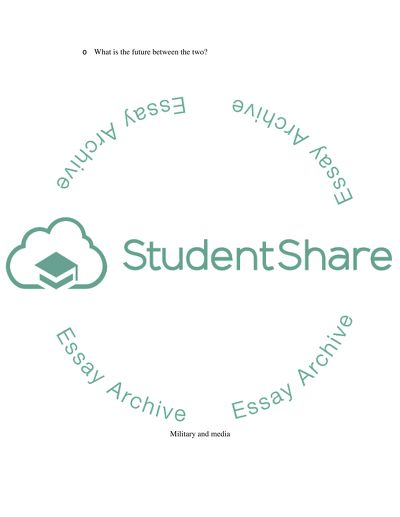Cite this document
(“Military and the Media Research Paper Example | Topics and Well Written Essays - 1500 words”, n.d.)
Retrieved from https://studentshare.org/family-consumer-science/1423803-military-and-the-media
Retrieved from https://studentshare.org/family-consumer-science/1423803-military-and-the-media
(Military and the Media Research Paper Example | Topics and Well Written Essays - 1500 Words)
https://studentshare.org/family-consumer-science/1423803-military-and-the-media.
https://studentshare.org/family-consumer-science/1423803-military-and-the-media.
“Military and the Media Research Paper Example | Topics and Well Written Essays - 1500 Words”, n.d. https://studentshare.org/family-consumer-science/1423803-military-and-the-media.


